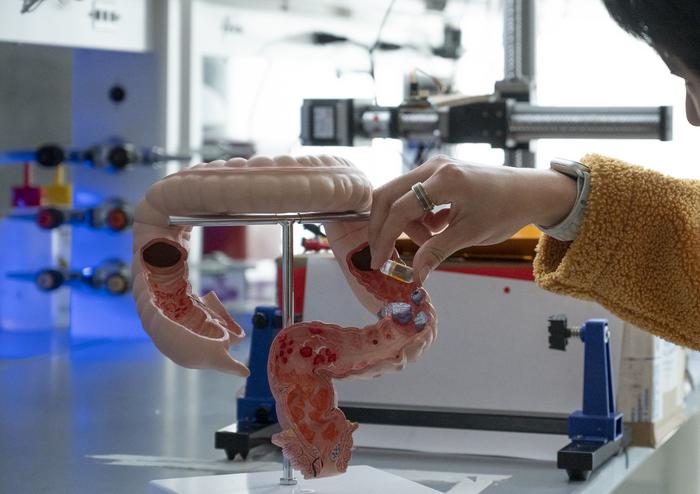Researchers at the USC Viterbi School of Engineering have developed a groundbreaking ingestible sensor that can detect stomach gasses and provide real-time location tracking without relying on GPS.
The smart pill, created by the Khan Lab, is designed to identify gasses associated with gastritis and gastric cancers, and is monitored through a newly designed wearable system. This innovation marks a significant advancement in ingestible technology, which Yasser Khan, an Assistant Professor of Electrical and Computer Engineering at USC, envisions as a potential ‘Fitbit for the gut’ and a tool for early disease detection.
Tracking ingestible devices within the body has been a challenge, but with advancements in materials, miniaturized electronics, and new protocols developed by Khan, researchers have successfully demonstrated the ability to locate devices specifically in the GI tract.
Wearable Coil and Neural Network Enable Precise Capsule Tracking
The USC team, led by Ansa Abdigazy, a PhD student in the Khan Lab, placed a wearable coil that generates a magnetic field on a t-shirt. This field, coupled with a trained neural network, allows the team to locate the capsule within the body – a feat that has not been previously demonstrated with a wearable device.
The capsule is equipped with both location tracking electronics and an optical sensing membrane selective to gasses. The membrane is made of materials whose electrons change their behavior in the presence of ammonia gas, which is a component of H pylori, a gut bacteria that, when elevated, could indicate peptic ulcer, gastric cancer, or irritable bowel syndrome.
Potential Applications Beyond Gut Health: Monitoring Brain Health via the Brain-Gut Axis
The USC team has rigorously tested this ingestible device in various environments, including liquid settings and simulated bovine intestines. “The ingestible system with the wearable coil is both compact and practical, offering a clear path for application in human health,” said Khan. The device is currently patent pending, and the next step is to test these wearables with swine models.
Beyond its potential for early detection of peptic ulcers, gastritis, and gastric cancers, the device holds promise for monitoring brain health. Neurotransmitters residing in the gut and their regulation have been correlated with neurodegenerative diseases, making the brain-gut axis a key focus of Khan’s research. His ultimate goal is to develop non-invasive methods for detecting neurotransmitters related to Parkinson’s and Alzheimer’s.
“The presence of this gas “is a proxy” and “can be used as an early disease detection mechanism,” says Khan, highlighting the significance of this innovation in the field of ingestible technology and its potential to revolutionize both gut and brain health monitoring.


